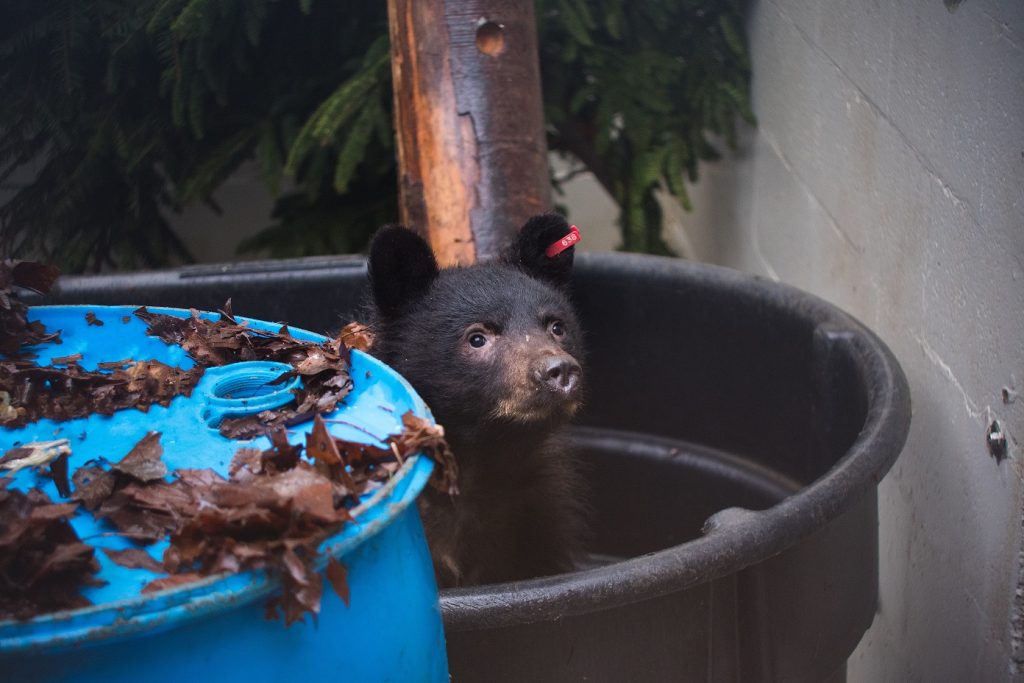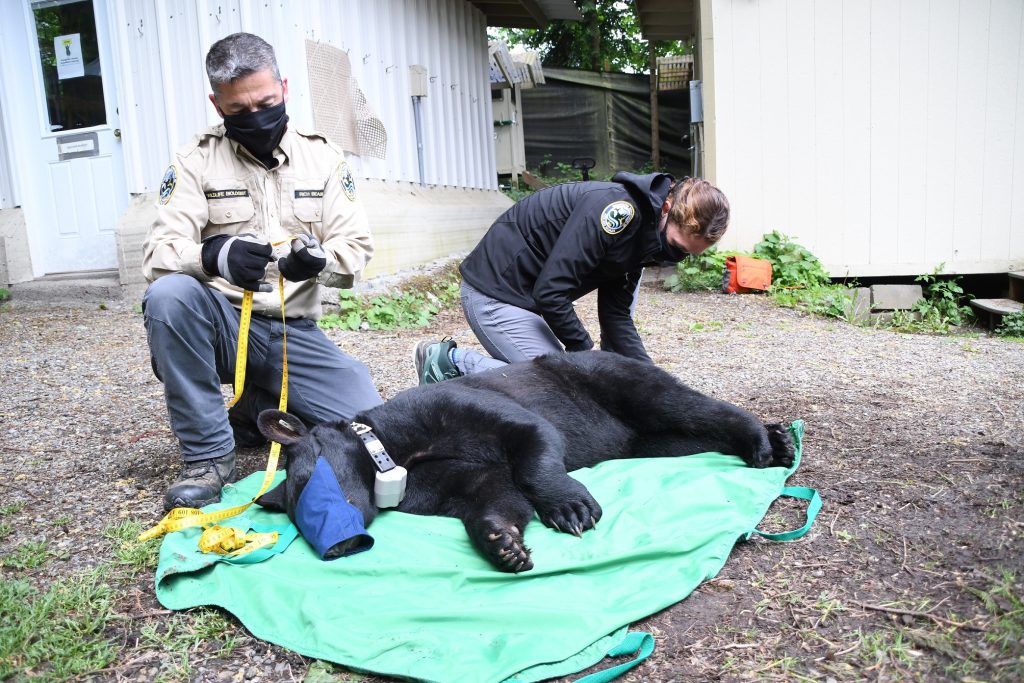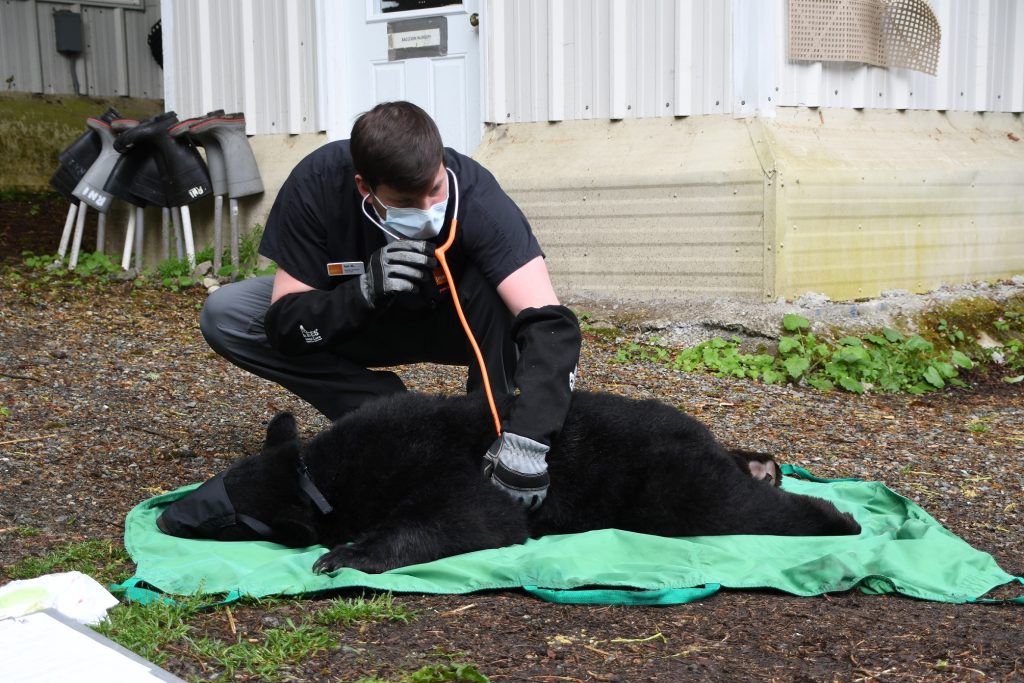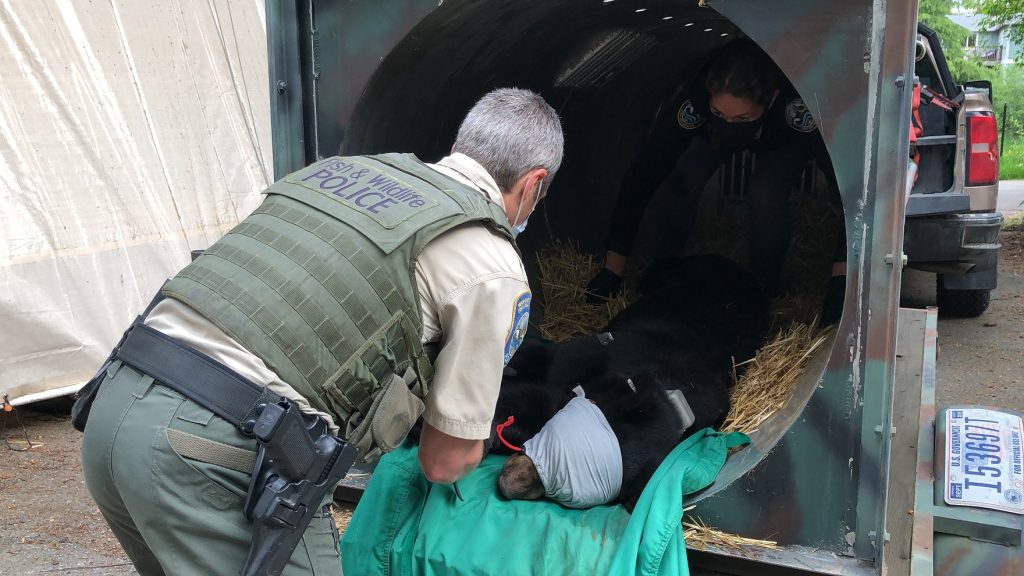By Erin Freeman | Lynnwood Times Staff
Seven American Black Bears were successfully rehabilitated and recently released back into the wild, after receiving care for upwards of a year at PAWS, a Lynnwood nonprofit providing wildlife rehabilitation, animal sheltering and adoption services, and educational programs.
After
spending nearly 200 days together, the bears, who were released to the wild in
groups of twos and threes, parted ways.

On March 31, 2019, two bear cub siblings, estimated to be three months old, arrived at the facility’s Wildlife Center. Between September and October, four more abandoned and orphaned cubs arrived. One more recently arrived in March of 2020.
The rehabilitation center held the release of the seven bears the week of May 12, relocating the yearlings into the Southern and Northern Cascade Mountains. The bears will spend the next month traveling and locating meal hubs, before becoming completely accustomed to their new home.

Due to the COVID-19 pandemic, adjustments to long-standing and routine wildlife release protocols were made. Under normal circumstances, PAWS staff would’ve sedated the bears and brought them into a veterinary operating room, where they would’ve been given a health assessment and prepared for release. However, to adhere to social distancing requirements, the same pre-release measures were administered by masked staff on a tarp outside.
PAWS
staff and donors also refrained from participation in the release itself,
leaving it to a team of their partnership with the Washington Department of
Fish and Wildlife (WDFW).

Upon release, the bears joined a longstanding research project and were radio-collared for tracking purposes by the WDFW, for continued surveillance of up to six years to obtain data comparing the survival rates of rehabilitated bears with non-rehabilitated bears in the wild.
“We’ve been tracking them, and all indications show that they’re doing a very good job,” explained WDFW’s statewide Bear and Cougar Specialist Rich Beausoleil. “They’re picking the same types of dens as wild bears, it’s awesome.”
When black bear cubs come into the Wildlife Center, staff and veterinarians take every measure to limit human interaction to make sure they stay wild for eventual release back into the wild. The PAWS team develops the cubs’ survival skills by simulating foraging opportunities in the enclosures, through hiding food in puzzle-like scenarios challenging them to find their meals.
“At PAWS we don’t necessarily teach the bears to be wild, bears know they’re wild,” explained Jennifer Convy, Senior Director of Companion Animal, Wildlife and Education Services. “They know what to do, we just help them develop those natural skills they already have.”
In the wild, American Black Bear cubs typically remain with their mothers for 18 months.At PAWS, orphaned cubs are raised together for developmental purposes, which heavily relies upon their social interaction and bonds with other bears.
“Bears, like many orphaned wild animals, do a lot better when raised with others of their kind. If they’re around the same size and healthy enough, they can be combined,” said Convey. “They sleep, play, wrestle, forage, and compete for food; all the behavior they would display in the wild.”
Beausoleil
says that without organizations like PAWS with rehabilitation resources
producing successful survival, the WDFW would most likely be forced to
euthanize abandoned juvenile wildlife.

“PAWS is serving an essential function…rehabilitation is a delicate game,” said Beausoleil. “Outfits like PAWS, they’re doing everything right. We would never be able to do this without their help.”
PAWS Wildlife Center is the largest of two facilities in Washington State permitted to provide recovery services to American Black Bears. According to PAWS Spokesperson Laura Follis, bears are the most resource-intensive animals cared for of the 260 wild species PAWS provides rehabilitation services for.
“We give back to the animals in need because they’re just trying to survive. We’re not only rehabilitating the animals, which is the right thing to do, but we’re also replacing the damage we’ve done,” explained Convey. “Most animals that come into the Wildlife Center are injured usually due to human activity in some way. We’re giving them another chance at life.”
Since the 1980s PAWS has cared for at least 136 black bears. Three additional orphaned bear cubs will stay with PAWS through the winter for release next spring.
To learn more about PAWS, visit https://www.paws.org/.




















3 Responses